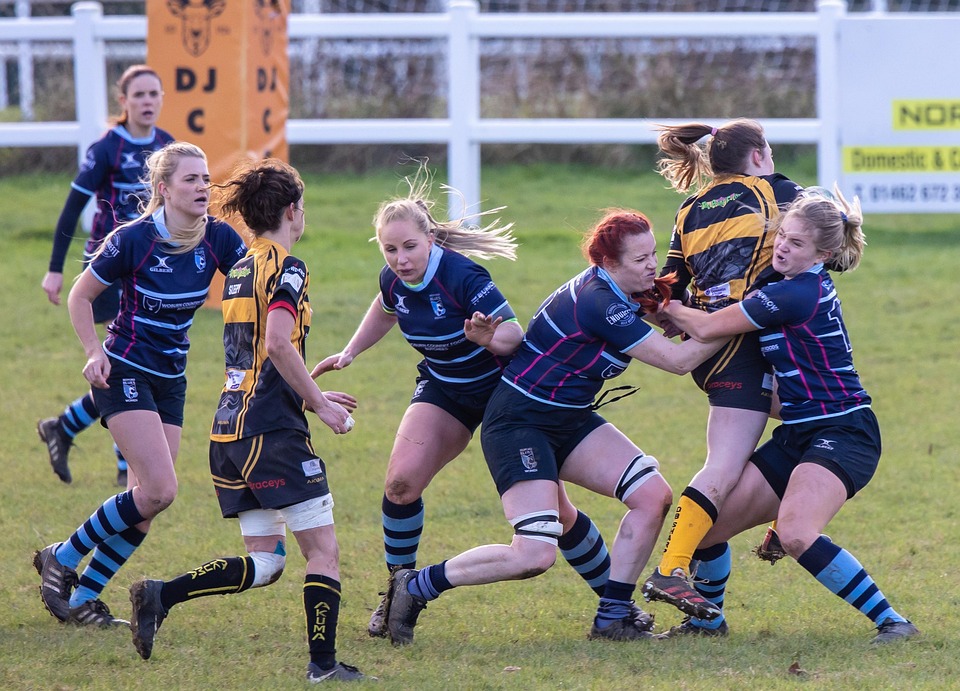Rugby, often regarded as a sport for the physically resilient, has traditionally been dominated by male athletes. However, in recent years, women’s rugby has surged to the forefront, breaking barriers and paving the way for future generations. This article explores the evolution of women in rugby, their growing impact on the sport, and the legacy they are building.
A Transformative Journey
The history of women in rugby can be traced back to the 19th century. While the men’s game developed into an organized sport, women’s participation remained largely informal, with women playing matches in parks and at social events. It was not until the 1980s that women’s rugby began to find its place on the global stage, with the establishment of formal competitions.
The inaugural Women’s Rugby World Cup in 1991 marked a turning point. It provided a platform for women athletes to showcase their talent and passion for the game. Since then, the Women’s Rugby World Cup has grown in prestige, culminating in increasingly competitive tournaments that draw audiences worldwide.
Breaking Stereotypes
Women in rugby have continually faced societal stereotypes that question their strength, toughness, and place in the sport. However, athletes like New Zealand’s Portia Woodman, England’s Sarah Hunter, and USA’s Players like Kate Zachary have challenged these notions, demonstrating that strength is not confined to a gender.
Their performances serve as a testament to the skill, endurance, and resilience women bring to rugby. As female athletes break records and lead teams to victories, they inspire younger generations to see rugby as an inclusive sport that welcomes all players, regardless of gender.
Growing Popularity and Visibility
The visibility of women in rugby has significantly increased in recent years, thanks in part to efforts from governing bodies, sponsors, and media outlets. Major events such as the Women’s Six Nations and the Women’s Rugby World Cup have garnered more attention, showcasing the incredible athleticism of female rugby players.
Social media platforms have played a pivotal role in amplifying women’s rugby, allowing players to share their journeys, successes, and challenges. This visibility not only encourages participation but also fosters a sense of community among players, fans, and aspiring athletes.
Inclusion and Empowerment
The movement for equality has become a driving force within women’s rugby. Organizations and initiatives are dedicated to promoting inclusion and ensuring equal opportunities for all female players. Grassroots programs are focusing on getting girls involved in rugby from a young age, dispelling myths about the sport being too rough or masculine for women.
Moreover, more women are taking on leadership roles within the sport, from coaching positions to administrative roles in rugby federations. This shift is essential in creating an environment that not only supports women on the pitch but also empowers them off it.
Legacy Building
The legacy of women in rugby is multifaceted, comprising the achievements of individual athletes, the establishment of strong female teams, and the systemic changes that promote gender equity in the sport. As more women enter the game, they contribute to a cycle of empowerment, paving the way for greater participation and representation.
In 2021, the International Rugby Board announced plans to invest more resources in women’s rugby, aiming to double the number of female players by 2027. Such initiatives underscore the commitment to building a sustainable future for women in rugby.
Conclusion
Women in rugby are not merely breaking barriers; they are setting new standards for athleticism, teamwork, and resilience. Their journey from informal matches to international competitions illustrates the transformative power of sport in promoting gender equality.
As female players continue to make strides and inspire future generations, they are building a legacy that will resonate throughout the sporting world. The impact of their involvement in rugby extends beyond the pitch, encouraging a culture of inclusivity and celebration of diversity in athletics. The future of women in rugby looks promising, and their legacy is just beginning to unfold.



